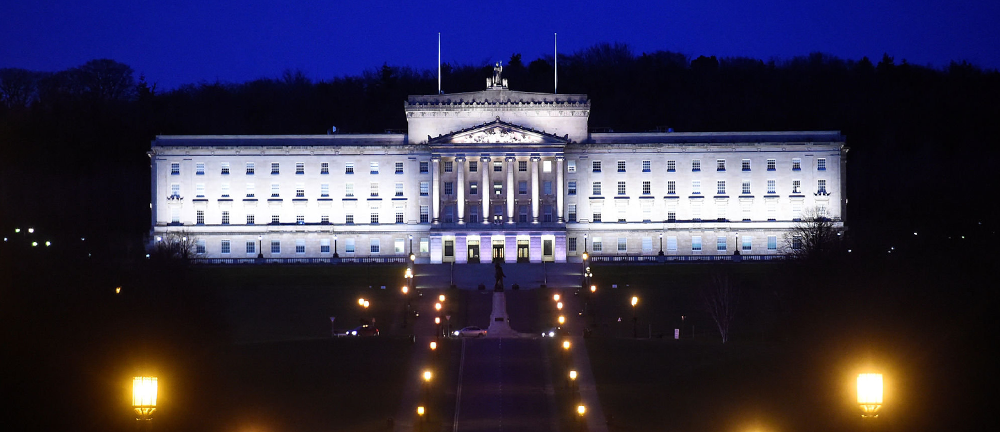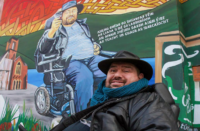At the start of a new year, it is worthwhile asking what are the prospects for positive progress in the northern six counties? It will hardly surprise our readers if we say that the omens are not offering much ground for optimism. Depressingly, the statistics, recording social deprivation amid a failing welfare system, continue to shame what claims to be a modern developed society. All the while the Stormont Assembly and its Executive preside over a performance that is inadequate at best, but more often excruciatingly abysmal.
Meanwhile, nothing highlights the urgent need for corrective action better than the plight of the region’s poorest children as identified recently by Irish News columnist Patrick Murphy[1]. To quote only two statistics and they make for stark reading. Over 5,300 children are homeless in the North, a 121% increase over five years. At the same time more than 103,000 children (almost 1 in 4) are living in poverty. Lamentably, there are no targets to reduce child poverty in Stormont’s recent draft Programme for Government.
Nevertheless, and in spite of such a dire picture, there sits a political class forever eager to address a host of issues but never doing so with any degree of meaningful consistency or indeed coherence. Playing to the gallery rather than problem-solving is the order of the day.
Take for example the recent spectacle of the DUP’s Westminster Chief Whip Sammy Wilson joining a protest at Larne Port against the importation of potatoes from England. Claiming that Sasanach spuds are displacing locally grown tubers in northern Irish supermarkets, he strongly advised a public boycott of the British variety in favour of Ulster tatties.
This is the very same high ranking DUP politician who is outraged at the outworking of the Brexit vote which prevents the straightforward importation of sausages, mince meat and cheese from Britain into the North. Surely what is good for one local producer should apply to others. After all, there is a long history of milk and meat production in Sammy’s own constituency. But then, what matters to the MP for East Antrim is the day’s headline rather exacting logic or consistency.
Of course, the DUP cannot claim the distinction of being alone in delivering a mystifying ability to befuddle. Sinn Féin’s vice president and Northern Ireland’s First Minister Michelle O’Neill concedes nothing when it comes to the practice of self-contradiction.
While claiming last March to grieve for the suffering people of Gaza, she flew business-class to Washington for a St Patrick’s Day party with Genocide Joe Biden. November came and found her honouring deceased members of the British military at an Armistice Day event. The following month and apparently seeing no paradox, O’Neill ensured she was photographed taking part in a commemoration for dead IRA volunteers.
The above cases are not isolated or unique examples of what passes for politics in the North. Inadequate, dilapidated or non-existent infrastructure coupled with a severely depleted welfare state point to the urgent need for local-government action. Yet when confronted with such issues, the stock answer is the same: there is not enough money in the block grant, i.e. the financial allocation from the Treasury in London.
For once, the Assembly might have a case in so far as British government funding is less than what is required. Nevertheless, the MLAs’ cause was not helped when it recently emerged that members of the Executive and senior civil servants were spending large sums of money on lavish travel to foreign destinations. One such seven-night trip by four MLAs to attend a Commonwealth Parliamentary Association on the South Atlantic Island of St Helena (the place of Napoleon’s exile) at a cost of £10,485. Compounding this insult to probity was the fact that last month the Assembly voted to award itself a 10% pay rise.
What though, one might be inclined to ask, is the point in having a devolved administration in the North when quite clearly it has neither the ability to manage or is in receipt of adequate financial resources to meet the area’s needs? Indeed, a cynic might be tempted to speculate that Britain’s ruling class is happy to see this situation of hapless political and administrative stasis continue indefinitely. After all, an area that is deemed, technically at least, an integral part of the United Kingdom is no longer the source of instability that it once was.
Then again on reflection perhaps the existence of an alternative agenda may not be so far-fetched after all. Because in spite of every effort by the PSNI to prevent disclosure, irrefutable evidence has emerged of the dark role played by the British Establishment and its Secret Service over decades past, in order to control the North.
Whatever the reality may be, it is clear little can be done to positively reform the 6-County political entity. It is essential therefore that instead of merely talking about a Border poll and unity in the abstract, that progressive folk must highlight the Ireland we need to build post-Stormont: a Workers’ Republic and nothing less.
[1]Murphy, P (2024) “Bah, humbug – welcome to the world of Ebenezer Stormont” Irish News 21/12/2024






